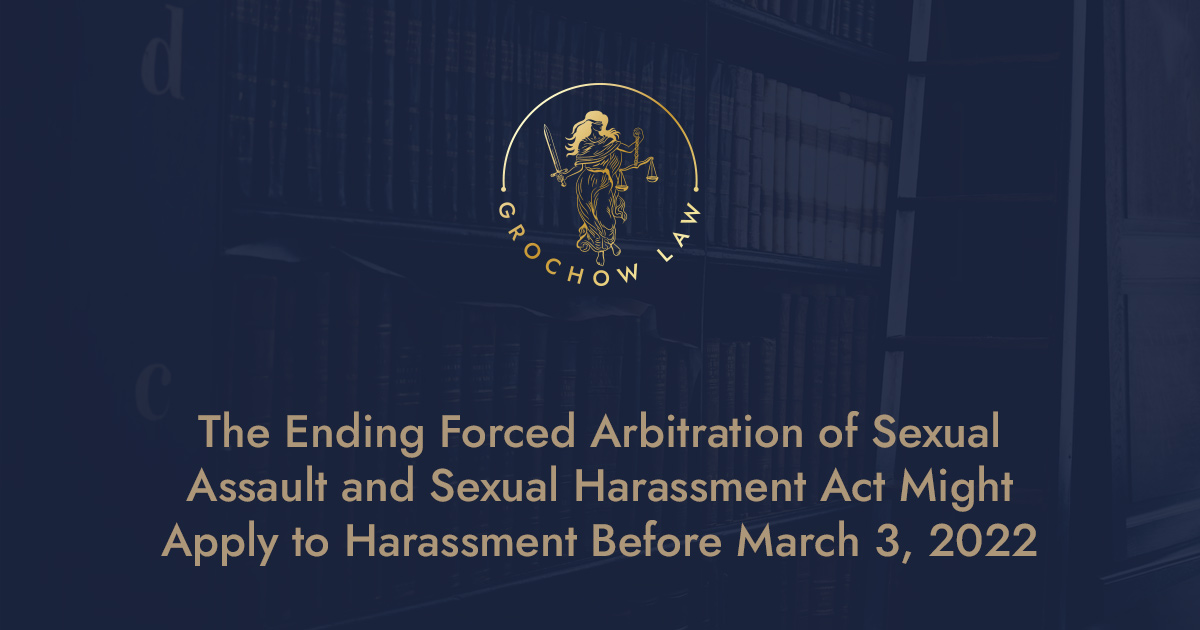The Ending Forced Arbitration of Sexual Assault and Sexual Harassment Act (9 U.S.C. § 401, et seq.) (the “Act”) became effective on March 3, 2022. Its enactment is a true victory for victims of sexual assault and harassment, allowing them to have their day in court before a jury of their peers, instead of being forced to privately arbitrate their claims. Filing sexual assault and harassment claims in court also helps create a public record against bad actors, which can be critical in cases where there are serial offenders. A “statutory note” to the Act states that the “Act shall apply with respect to any dispute or claim that arises or accrues on or after the date of enactment of this Act.” In Kader v. Southern California Medical Center, Inc., 99 Cal App.5th 214 (2024), the plaintiff worked as the CFO and then COO of the employer, when he signed an arbitration agreement on June 25, 2019, agreeing to arbitrate “employment disputes.” The plaintiff was allegedly subjected to multiple acts of sexual assault and harassment both before and after signing the arbitration agreement. However, the plaintiff did not file a complaint with the California Department of Fair Employment and Housing (“DFEH,” now known as the Civil Rights Department) until May 2022. The employer moved to compel the employee’s case to arbitration on the grounds that the “dispute” between the parties arose prior to March 3, 2022. However, the trial court denied the motion to compel arbitration, finding that “there was no evidence that [the plaintiff] asserted any right, claim, or demand prior to filing charges with the DFEH in May 2022.” The court of appeals affirmed.
This post is an advertisement. Any comments provided do not create an attorney-client relationship.

